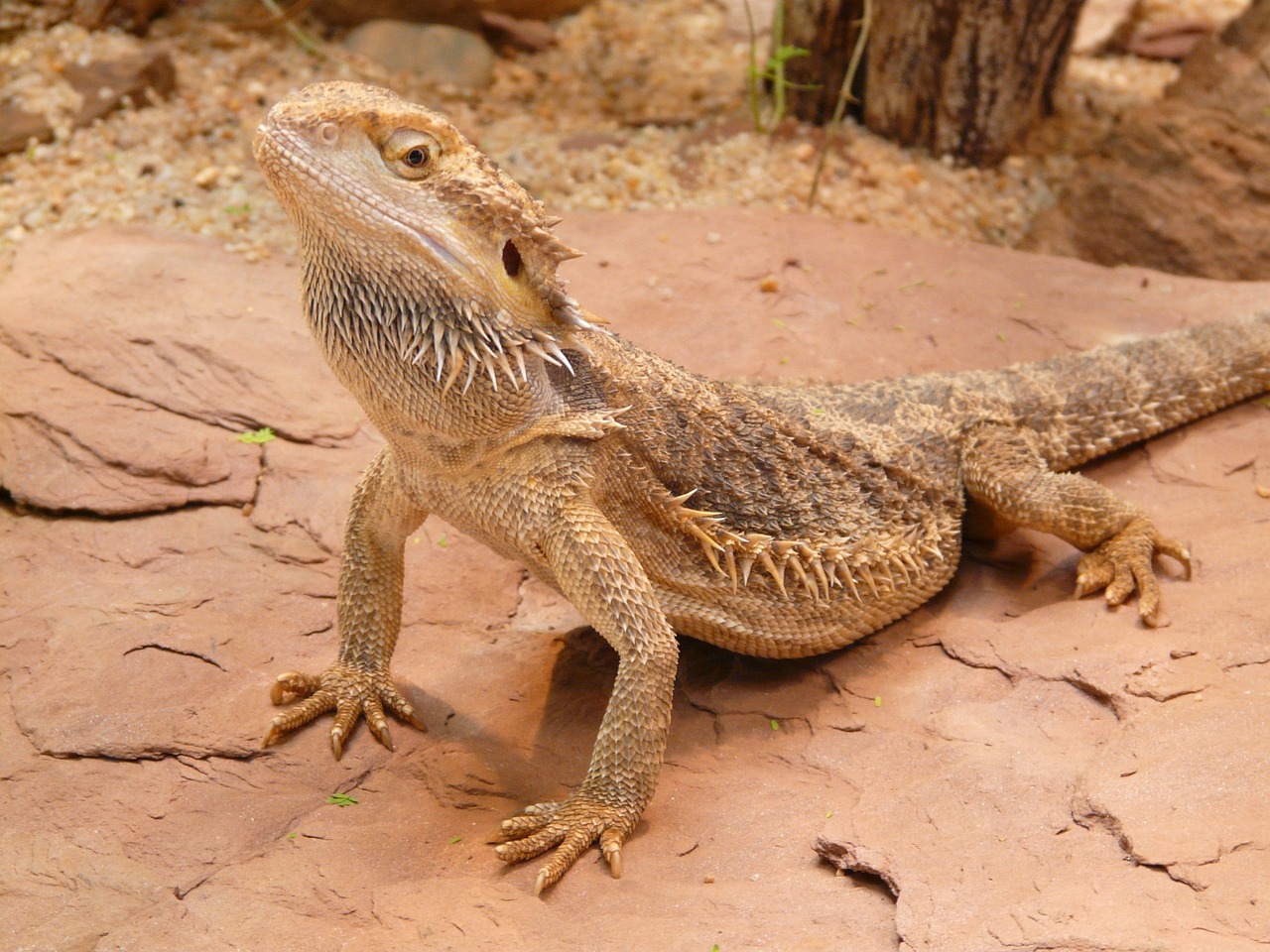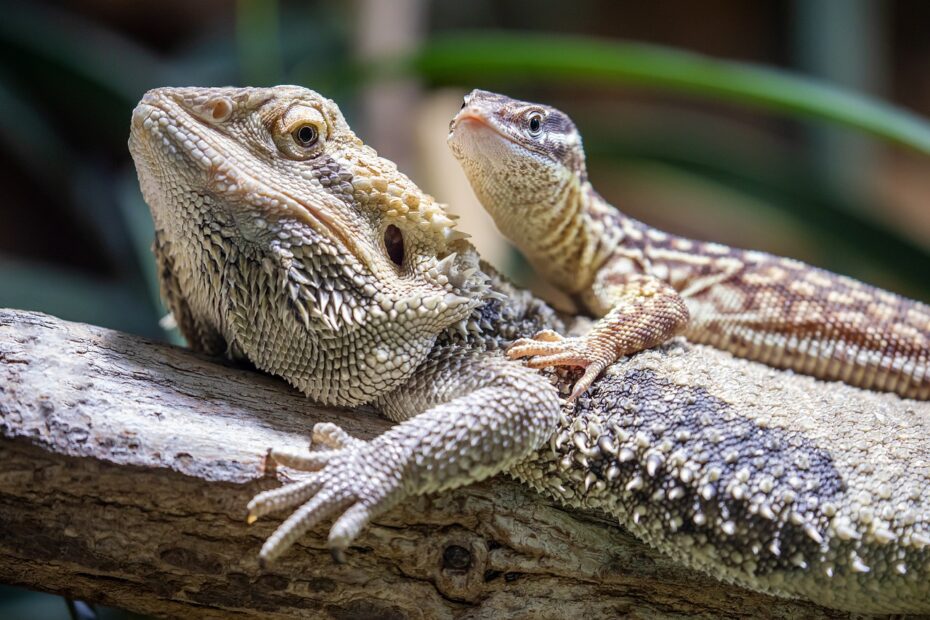Bearded dragons (Pogona vitticeps) are enchanting reptilian companions that have gained popularity among pet enthusiasts. As with any pet, concerns about potential odor can arise.
Do Bearded Dragons Smell Bad? In this article, we will explore the world of bearded dragons, understand their biology, and address the question of whether they produce bad smells. Let’s delve into the intriguing world of these reptiles and debunk common misconceptions about their odor.
You may also want to read about the 10 most common bearded dragon keeping mistakes.
Understanding Bearded Dragon Biology
Bearded dragons possess specialized glands that play essential roles in their biology. These glands produce various secretions, each with specific functions. While some of these secretions contribute to natural bearded dragon odor, others are related to communication and territorial behaviors.
Do Bearded Dragons Smell Bad?
In general, bearded dragons do not emit strong or offensive odors. However, there are a few common factors that might contribute to a slight odor. The bearded dragon’s diet and digestive processes can impact their scent. Additionally, during shedding, the process of skin renewal might cause a temporary change in their smell.
Proper Enclosure Cleaning and Maintenance
To ensure a pleasant environment for your bearded dragon, regular cleaning and maintenance of their enclosure are essential. Proper enclosure hygiene not only minimizes odors but also promotes your pet’s overall well-being. We’ll provide tips on how to keep the habitat clean and odor-free. Also make sure to give them the right food.

Identifying Abnormal Odors
While slight natural odors are normal for bearded dragons, a sudden change or a strong, foul smell may indicate potential health issues. Being familiar with your pet’s usual scent and recognizing abnormal odors can help you identify potential health concerns early on.
Tips for Reducing Bearded Dragon Odor
A well-balanced diet and proper hydration are essential factors in minimizing bearded dragon odor. We’ll offer suggestions for providing a nutritious diet and ensuring your pet remains adequately hydrated.
Bathing Your Bearded Dragon
Regular baths are beneficial for bearded dragons, not only for cleaning but also for skin health and hydration. We’ll explain the benefits of bathing and provide safe techniques for this enjoyable activity.
Reducing Stress to Minimize Odor
Stress can impact your bearded dragon’s well-being and, in some cases, contribute to odor changes. Understanding common stress triggers and creating a comfortable, stress-free environment is crucial.
Dealing with Seasonal Changes
Seasonal variations can influence bearded dragon behavior and physiology, including slight changes in odor. We’ll discuss how to adapt your care routine accordingly during seasonal shifts.
Addressing Concerns About Handling
It’s normal for bearded dragons to have a slight odor after handling. Proper handwashing techniques and handling practices can help ensure a pleasant experience for both you and your pet.
Conclusion
Do Bearded Dragons Smell Bad? Bearded dragons are captivating and generally do not produce bad smells. Understanding their biology, proper care, and hygiene are key to maintaining a pleasant environment for your reptilian friend.
If you notice any unusual or strong odors, it’s essential to monitor your bearded dragon’s health and seek veterinary assistance if needed. Remember that the slight, natural odor of these magnificent creatures is just a small part of the joy they bring to their human companions.
FAQs About Bearded Dragons and Odor
- Do bearded dragons smell bad? Bearded dragons typically do not emit strong or offensive odors. They have a slight, natural scent that is considered normal for their species.
- What causes the natural scent in bearded dragons? Bearded dragons have specialized glands that produce secretions with specific functions, some of which contribute to their natural scent.
- Can a bearded dragon’s diet affect their odor? Yes, a bearded dragon’s diet can impact their scent. Providing a balanced and nutritious diet can help minimize any potential odor.
- Do bearded dragons have a particular odor during shedding? Yes, during the shedding process, bearded dragons might have a temporary change in their scent due to skin renewal.
- How can I keep my bearded dragon’s enclosure odor-free? Regular cleaning and maintenance of the enclosure are essential to minimize any odors. Clean their habitat and accessories regularly to create a pleasant environment.
- What if I notice an unusual or strong odor from my bearded dragon? If you notice a sudden change or a strong, foul smell, it might indicate potential health issues. Monitor your pet’s behavior and consult a veterinarian if needed.
- Is bathing necessary for my bearded dragon to reduce odor? Regular baths can be beneficial for bearded dragons, not only for cleaning but also for skin health and hydration. However, they do not need frequent baths.
- How can I reduce stress to minimize any odor changes in my bearded dragon? Providing a comfortable and stress-free environment for your bearded dragon is crucial. Minimizing stress can help maintain their well-being and scent.
- Are there seasonal changes that affect a bearded dragon’s scent? Seasonal variations can influence bearded dragon behavior and physiology, including slight changes in scent. Adjust your care routine accordingly during these shifts.
- Is it normal for my bearded dragon to have a slight odor after handling? Yes, it is normal for bearded dragons to have a slight odor after handling. Proper handwashing techniques and handling practices can help minimize any scent.
Remember that bearded dragons are generally odor-free pets, and any slight scent they have is a natural part of their biology. If you have concerns about their odor or overall health, consult a reptile veterinarian for personalized advice and guidance.
